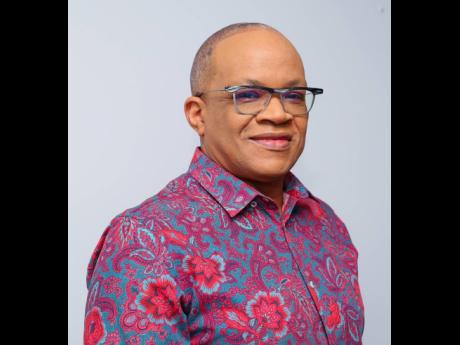Michael Abrahams | Rape is always the fault of the rapist
Althea* was only five years old when she was violated by her stepfather. She was a child, but was old enough to know that something was awfully wrong, and to feel violated. The molestation was documented in her diary, but when her mother came across the evidence, she tore the relevant pages out and discarded them, stating that “not everything good fi eat good fi talk”.
Nothing was done, at least not until Althea’s sister was raped by the same perpetrator and became pregnant. Althea’s childhood was traumatic. She was sexually, emotionally, and physically abused and emotionally neglected. She has been struggling with depression, including bouts of being suicidal ideation, since then.
Eventually, Althea got married. Survivors of childhood sexual abuse often find it hard to open up and speak about their trauma, and some are never able to do this. However, being married and in what she thought was a safe space, she related her experience to her husband. She expected empathy, but what she got was judgement. His response was not to comfort and reassure her, but to become irritated and tell her that “sometimes because of how girls are shaped and the way they dress, they bring it on themselves”.
She had no words. Althea’s depression intensified after that triggering conversation, to the point where she began to experience physical symptoms. Not surprisingly, she and her husband are now separated.
Althea’s victim-blaming experience is not an isolated case. Victim blaming is very common when it comes to violence against women, especially sexual violence. A close friend of mine related an incident that took place when she was in her early teens. A deacon groped her one day on the compound of the church she attended. She had just left the bathroom and was returning to the church building when he pushed her down, placed one hand over her mouth, and used the other to “feel her up”, only stopping after she bit him and ran away to safety. She promptly reported the incident to her mother, who was understandably upset. But when her mother approached the perpetrator, his wife intervened, defending her husband and placing the blame squarely on the girl and her mother because of how she was attired, stating that her mother “did not make her dress properly”. She was wearing a sweater and pants at the time.
More recently, I watched an episode of the local television programme All Angles. There has been a spate of violent attacks on women in Jamaica recently, and the issue of violence against women was the topic for discussion. During a vox pop segment, a woman said that women “must wear clothes”, implying that scantily clad women are the problem.
This victim blaming must stop. Girls in school uniforms get raped. Female soldiers in military fatigues get raped. Conservative Christian women, including nuns, clad from neck to ankle get raped. Elderly women in long nightgowns, lying in their beds and covered in sheets and blankets, get raped. Rape has nothing to do with what a woman is wearing.
RAPIST IS ALWAYS AT FAULT
What people need to understand is that rape, although involving sex, is not all about sex. It is an act of violence and control and is one of the most dehumanizing assaults a human being can experience. Depression, anxiety, PTSD (post-traumatic stress disorder), suicidal ideation and suicide itself are not uncommon sequelae of rape and other forms of sexual assault.
When anyone, whether female or male (boys and men are victims too) gets raped, it is never the fault of the victim. Rapists must be held accountable for their actions. Too many times rape victims are blamed. Questions like, “Why did you wear that?” and “Why did you go there?” are condescendingly asked of rape victims. Instead, the questions we need to ask should be directed at rapists, such as “Why did you rape?”
Although males get raped too, the majority of victims are female, and way too much pressure is placed on girls and women to be mindful of what they wear, where they go, and in whose presence they find themselves. We need to change this narrative and also place the responsibility on our boys and men. There needs to be more conversations with our boys and young men about the concepts of respect, boundaries, and consent. Those of us who know better and are more enlightened need to initiate these conversations in our homes, schools, churches, and in other places where our young people gather and can be engaged. These concepts need to be repeated and reinforced over and over and over again until they become mantras.
Today, my country is in a crisis, with violent crimes taking centre stage in our news reports on an almost daily basis. Much work needs to be done to combat violence, but regarding violence against women, our boys and young men need to be engaged and taught that regarding sexual violence against women, the responsibility is theirs to behave appropriately and not the women’s.
*Name changed to preserve anonymity .
Michael Abrahams is an obstetrician and gynaecologist, social commentator, and human-rights advocate. Email feedback to columns@gleanerjm.com and michabe_1999@hotmail.com, or Twitter @mikeyabrahams.

